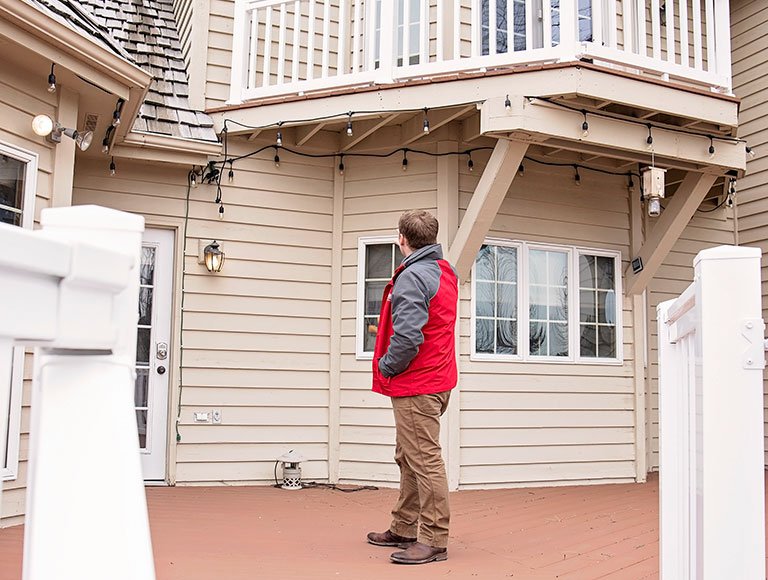When it comes to purchasing a home, ensuring its condition is paramount. You wouldn’t buy a car without checking under the hood, right? Similarly, understanding the state of your potential new home is crucial, and that’s where Chicago home inspection services come into play. These inspections provide a thorough evaluation of a property, helping you make an informed decision before finalizing your purchase. In this post, we’ll delve into the importance of home inspections, what to expect during the process, and how to choose the right inspection service in Chicago.
Why Are Home Inspections Important?
Protect Your Investment
Buying a home is likely one of the most significant investments you will make in your lifetime. A thorough inspection can uncover hidden issues that could lead to costly repairs down the road. Problems such as structural damage, faulty wiring, or plumbing leaks can create significant financial burdens if not identified before purchase. Engaging professional Chicago home inspection services can save you from these unexpected expenses.
Peace of Mind
Purchasing a home is an emotional journey filled with excitement and anxiety. Knowing that a professional has thoroughly evaluated the property provides peace of mind. You’ll feel more confident in your decision, whether you’re a first-time buyer or an experienced homeowner.
Negotiation Leverage
A comprehensive inspection report can be a powerful negotiation tool. If significant issues are discovered, you can use this information to negotiate repairs or a reduction in the sale price with the seller. This not only helps you avoid overpaying for the property but also ensures that you are making a sound investment.
What to Expect During a Home Inspection
If you’re new to the home-buying process, you might be wondering what to expect during a home inspection. Here’s a step-by-step overview of the typical inspection process:
Initial Consultation
Before the inspection begins, you’ll have an initial consultation with the inspector. This is your opportunity to discuss any specific concerns you have about the property and what you expect from the inspection. Make sure to communicate any areas you want the inspector to pay special attention to.
Exterior Inspection
The inspector will start by examining the exterior of the home. Key areas of focus include:
- Foundation: Inspectors look for cracks, settling, and any signs of moisture intrusion.
- Roof: They’ll evaluate the condition of the roofing materials, gutters, and flashing for any signs of wear or damage.
- Landscaping: Proper drainage and grading are crucial. The inspector will assess these aspects to ensure water flows away from the foundation.
Interior Inspection
Once the exterior has been evaluated, the inspector will move indoors. The following areas are typically inspected:
- Structural Components: Walls, ceilings, and floors will be checked for signs of damage, cracks, or sagging.
- Plumbing Systems: The inspector will look for leaks, the condition of pipes, and overall water pressure.
- Electrical Systems: They’ll evaluate the electrical panel, outlets, and wiring for safety and compliance with local codes.
- Heating and Cooling Systems: The HVAC systems will be assessed for functionality and efficiency.
Specialized Testing
In some cases, additional testing may be required. This could include:
- Radon Testing: Radon is a colorless, odorless gas that can pose serious health risks if present in high concentrations. Testing for radon is often recommended.
- Mold Inspection: If there are signs of moisture or water damage, a mold inspection may be necessary to ensure the air quality is safe.
- Pest Inspections: Some inspectors will also check for signs of pest infestations, such as termites, which can cause extensive damage.
Detailed Report
After the inspection, you will receive a detailed report outlining the findings. This report typically includes:
- Photographic Evidence: Images of any issues identified during the inspection.
- Recommendations: Suggestions for repairs or further evaluations.
- Summary of Findings: A clear overview of the home’s condition and any critical issues discovered.
Common Issues Found During Home Inspections
Understanding common problems can help you be better prepared for what the inspector might find. Here are several issues that frequently arise during home inspections:
Structural Concerns
Cracks in the foundation, uneven floors, and sagging roofs are signs of structural problems. These issues can be serious and often require further evaluation by a structural engineer.
Electrical Hazards
Inspectors often find outdated wiring, overloaded circuits, and non-compliant electrical systems. These hazards can pose serious safety risks and may need to be addressed immediately.
Plumbing Problems
Leaks, rusted pipes, and low water pressure are common plumbing issues that can lead to water damage if not addressed. Inspectors will check for these concerns to ensure the plumbing system is in good condition.
Roof Damage
Wear and tear on roofing materials can lead to leaks and water intrusion. Inspectors assess the roof’s condition to determine if repairs or replacements are necessary.
HVAC System Failures
Inefficient heating and cooling systems can lead to uncomfortable living conditions and high energy bills. Inspectors will evaluate the HVAC systems to ensure they are functioning properly.
How to Choose the Right Chicago Home Inspection Services
Finding the right home inspection service is essential for a successful inspection. Here are some tips to help you make an informed choice:
Check Credentials and Experience
Ensure that the inspector is licensed and certified in Illinois. Look for professionals with experience in various types of properties and knowledge of local building codes. Experienced inspectors will have a more comprehensive understanding of what to look for.
Read Reviews and Testimonials
Before making your choice, take the time to read reviews from previous clients. Look for inspectors who have positive feedback regarding their thoroughness, professionalism, and ability to communicate findings clearly.
Ask About Their Process
Inquire about the inspector’s process to ensure it aligns with your expectations. A good inspector should be willing to explain their methods and what to expect during the inspection.
Request a Sample Report
If possible, ask for a sample inspection report to gauge the level of detail and clarity provided. A well-structured report can be invaluable when reviewing findings and discussing them with other stakeholders.
Consider Communication Skills
Effective communication is key. Choose an inspector who is willing to take the time to answer your questions and explain their findings in a way that you can understand. This will help you feel more confident in your understanding of the home’s condition.
The Importance of Follow-Up
Once the inspection is complete, it’s crucial to follow up on any issues identified in the report. Here are some steps to take:
Review the Report Thoroughly
Take the time to read through the inspection report carefully. Pay special attention to any issues highlighted as urgent or critical.
Discuss with Your Agent
If you’re working with a real estate agent, share the report with them. They can help you understand the implications of the findings and guide you in making decisions.
Plan for Repairs
If the inspection reveals significant issues, create a plan for addressing them. This may involve getting quotes from contractors or discussing repair options with the seller.
Reassess Your Offer
Based on the findings, you may need to reassess your initial offer. If serious issues are uncovered, it may be prudent to negotiate a lower price or request repairs before closing the deal.
Benefits of a Home Inspection
Engaging in Chicago home inspection services offers numerous benefits beyond just identifying problems:
Informed Decision-Making
A thorough inspection equips you with the information needed to make informed decisions about your home purchase. You’ll have a clear understanding of the property’s condition and any potential risks.
Long-Term Cost Savings
Identifying issues early can save you money in the long run. Addressing problems before they escalate can prevent costly repairs and maintain your property’s value.
Safety and Peace of Mind
Knowing that a qualified inspector has evaluated the property provides peace of mind. You can rest assured that your new home is safe and sound, allowing you to focus on the excitement of moving in.
Conclusion
Investing in Chicago home inspection services is a vital step for any homebuyer. A thorough inspection helps protect your investment, provides peace of mind, and offers valuable insights into the property’s condition. By understanding what to expect during the inspection process and knowing how to choose the right inspector, you can navigate the home-buying journey with confidence.
Whether you’re a first-time homebuyer or an experienced investor, prioritizing a home inspection is essential. By doing so, you’ll ensure that your new home is a safe and sound investment, paving the way for a happy and comfortable living experience. With the right knowledge and resources, you can make informed decisions that will benefit you for years to come.
Also, read this: Comprehensive Mold Inspection Services in Columbus, OH












Leave a Reply